
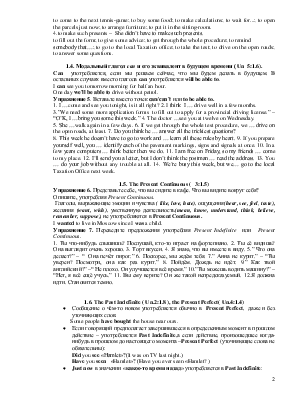
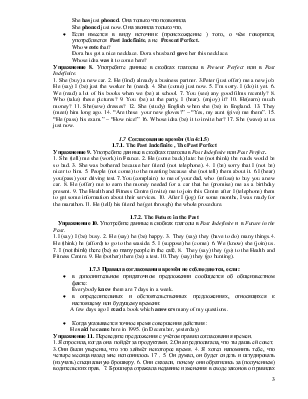
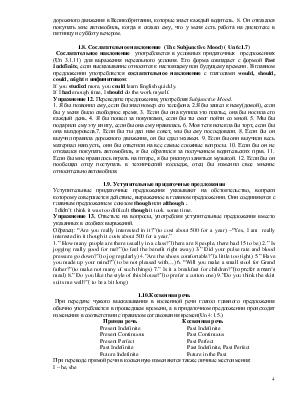
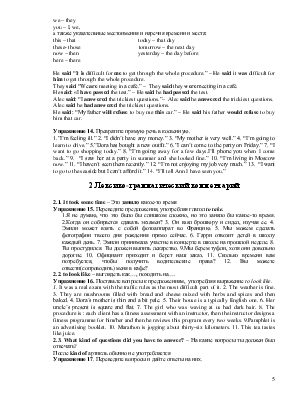

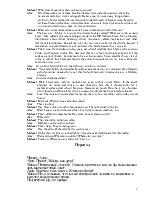
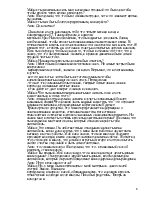
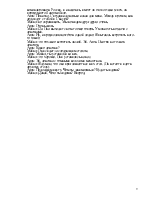
Unit 9
Грамматика
1.1.Возвратные местоимения (Un 5:1.4)
Упражнение 1.Вставте вместо точек соответствующие возвратные местоимения.
1.They listened to her playing. They really enjoyed …… 2. If people work too much, they can make ….. ill. 3. We looked at ….. in the mirror. 4. Help ….. to some juice. 5. She asked us to make ….. comfortable. 6. «What shall I do?» I asked ….. 7.Children often talk to …..8. The girl can’t look after ….. She is too little. 9. Did you buy this computer for ….? 10. They think only of …. 11. After she had walked for about ten minutes, she found ….. in front of a nice house. 12. I am going to buy …. a new dress. 13. We asked our new friends to tell us about ….. 14. Here is the menu. Order ….. the dishes you’d like to have. 15. I want to prepare ….. for this test.
1.2. Слова-заместители. Неопределенное местоимение one (Un 7:2.2.)
Неопределенное местоимение some (Un 4:1.1.)
Упражнение 2. Закончите предложения, употребляя местоимение one/ones в качестве заместителя или местоимение some.
1. “Help yourself to a banana” “No, thank you. I’ve got … .” 2. I don’t want black shoes. I want brown … . 3. Don’t let us buy green shirts. Let’s buy red … .4. “May I use one of your pens?” – “Which …?” 5. “I don’t like this dress” – “Shall I give you another …?” 6. I’ve got a blue cardigan . Now I want to buy a red … . 7. You should read all the magazines except the last … 8.”Which book was your uncle’s present?” – “The big … .” 9. Are you going to buy an old car or a new …? 10. “Have you got any questions?” – “Yes, I’ve got … .” 11. “Did you get any letters last Saturday?” – “Yes,I got … .” 12. “Were there any visitors yesterday?” – “Yes, there were … .” 13.”Are there any cups on the table?” – “Yes, there are … .” 14. If you haven’t got enough nuts, I’ll be happy to bring … . 15. “Did you have to answer simple questions?” – “No, I had to answer the trickiest … .”
1.3. Модальные обороты to have to, to have got to(Un 4:1.3.)
Оборот have(got) to выражает обязанность в силу сложившихся обстоятельств. Если речь идет о собственных желаниях или решениях, то употребляется глагол must.
I must stop smoking. (I want it myself)
I’ve got to stop smoking. (My doctor orders it)
Must you wear those old-fashioned things? (Do you want it?)
Do you have to wear a tie at work?(Is there a rule?)
Упражнение 3. Вставьте вместо точек must или have/has(got) to.
1. I’m tired. I ….. go to bed just now. 2. The children ….. go to school on Saturdays. 3. We ….. get a new car soon. 4. This is a great book I …. read it. 5. A driver … learn all these rules by heart. 6. We …. go to London for a meeting. 7. I ….. earn my money myself. 8. You really …. come and see us soon. 9. I …. try to spend more time at home. 10. You … visit them on the way to Moscow. 11. You really …. take your umbrella with you. 12. He …. be very careful. 13.Their business isn’t going well. They ….. improve it.
Упражнение 4. Составьте предложения по образцам, используя данные слова и словосочетания, по образцам.
1. to stay in London – I have got to stay in London for three days.
to go back home; to do a lot of things; to play tennis; to begin a new project; to drop smoking.
2. to write letters – They had to write letters to their friends.
to walk much; to go to the seaside; to look after the children; to take part in a concert; to become a musician; to persuade somebody to…
3. to take the children to school – Did you have to take the children to school?
to come to the next tennis-game; to buy some food; to make calculations; to wait for...; to open the parcels just now; to arrange furniture; to put it in the sitting-room.
4.to make such presents – She didn’t have to make such presents.
to fill out the form; to give some advice; to get through the whole procedure; to remind
somebody that…; to go to the local Taxation office; to take the test; to drive on the open roads; to answer some questions.
1.4. Модaльный глагол can и его эквивалент в будущем времени ( Un 5:1.6).
Can употребляется, если мы решаем сейчас, что мы будем делать в будущем. В остальных случаях вместо глаголаcan употребляется will be able to.
I can see you tomorrow morning for half an hour.
One day we’ll be able to drive without petrol.
Упражнение 5. Вставьте вместо точек can/can’t или to be able to.
1. I …come and see you tonight, is it all right? 2. I think I … drive well in a few months.
3.”We need some more application forms to fill out to apply for a provincial driving license.” – “O’K, I …bring you some this week.” 4. The doctor …see you at twelve on Wednesday.
Уважаемый посетитель!
Чтобы распечатать файл, скачайте его (в формате Word).
Ссылка на скачивание - внизу страницы.